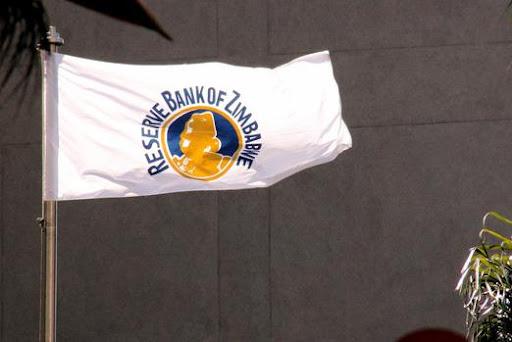News / National
RBZ defends exchange rate system
04 Sep 2025 at 07:33hrs |
0 Views

Reserve Bank of Zimbabwe (RBZ) Deputy Governor Dr Innocent Matshe has dismissed claims that the central bank is manipulating the foreign exchange market, insisting that the willing-buyer willing-seller (WBWS) system operates in line with international floating exchange rate models.
"It is absolutely untrue that we control the exchange rate. The trends in WBWS exchange rates indicate a normal pattern observed in floating systems—a random walk pattern. There is no RBZ interference," Matshe told Business Times. He added that the observed fluctuations between ZWG26 and ZWG30 against the US dollar are consistent with a liberalised, market-driven system.
Despite Matshe's defense, business leaders and economists remain sceptical. The Zimbabwe National Chamber of Commerce (ZNCC) warned that formal businesses are disadvantaged by market distortions and policy uncertainty. "The interbank market is perceived as largely controlled by the RBZ because voluntary sellers of foreign currency outside the apex bank are virtually absent," the ZNCC said.
Private sector players often bypass official channels for the parallel market, where rates are significantly higher than those offered formally. The ZNCC attributed this to insufficient foreign currency supply in the interbank system, despite RBZ interventions.
Oswell Binha, chairman of CEO Africa Roundtable, argued that "sub-optimal stability" undermines business confidence and encourages arbitrage and speculation.
Economist Eddie Cross noted that while the retail sector sees exchange rates around ZWG32–34 to the US dollar, informal markets can go as high as ZWG42:US$1. "The RBZ is managing the availability of ZIG, effectively keeping the system almost fully dollarised," he said, warning that the policy of converting 30% of export proceeds at the official rate devalues export earnings and disincentivises exporters.
Other economists echoed concerns over the managed nature of the system. Professor Tony Hawkins described the apparent stability as cosmetic, citing limited circulation of ZiG and controls over the foreign exchange market. Dr Prosper Chitambara highlighted IMF observations that Zimbabwe's exchange rate system remains managed, not liberalised. Economist Malone Gwadu described it as a hybrid system, with market bidding constrained by restricted liquidity.
Despite the criticism, Matshe reiterated that the exchange rate is market-determined. "These are market-determined exchange rates," he said, emphasizing that fluctuations in the WBWS system reflect genuine market activity.
The debate underscores lingering skepticism over the RBZ's currency reforms, highlighting the fragile confidence in Zimbabwe's foreign exchange system.
"It is absolutely untrue that we control the exchange rate. The trends in WBWS exchange rates indicate a normal pattern observed in floating systems—a random walk pattern. There is no RBZ interference," Matshe told Business Times. He added that the observed fluctuations between ZWG26 and ZWG30 against the US dollar are consistent with a liberalised, market-driven system.
Despite Matshe's defense, business leaders and economists remain sceptical. The Zimbabwe National Chamber of Commerce (ZNCC) warned that formal businesses are disadvantaged by market distortions and policy uncertainty. "The interbank market is perceived as largely controlled by the RBZ because voluntary sellers of foreign currency outside the apex bank are virtually absent," the ZNCC said.
Private sector players often bypass official channels for the parallel market, where rates are significantly higher than those offered formally. The ZNCC attributed this to insufficient foreign currency supply in the interbank system, despite RBZ interventions.
Oswell Binha, chairman of CEO Africa Roundtable, argued that "sub-optimal stability" undermines business confidence and encourages arbitrage and speculation.
Economist Eddie Cross noted that while the retail sector sees exchange rates around ZWG32–34 to the US dollar, informal markets can go as high as ZWG42:US$1. "The RBZ is managing the availability of ZIG, effectively keeping the system almost fully dollarised," he said, warning that the policy of converting 30% of export proceeds at the official rate devalues export earnings and disincentivises exporters.
Other economists echoed concerns over the managed nature of the system. Professor Tony Hawkins described the apparent stability as cosmetic, citing limited circulation of ZiG and controls over the foreign exchange market. Dr Prosper Chitambara highlighted IMF observations that Zimbabwe's exchange rate system remains managed, not liberalised. Economist Malone Gwadu described it as a hybrid system, with market bidding constrained by restricted liquidity.
Despite the criticism, Matshe reiterated that the exchange rate is market-determined. "These are market-determined exchange rates," he said, emphasizing that fluctuations in the WBWS system reflect genuine market activity.
The debate underscores lingering skepticism over the RBZ's currency reforms, highlighting the fragile confidence in Zimbabwe's foreign exchange system.
Source - Business Times
Join the discussion
Loading comments…





























